SUMMARY
This is AI generated summarization, which may have errors. For context, always refer to the full article.
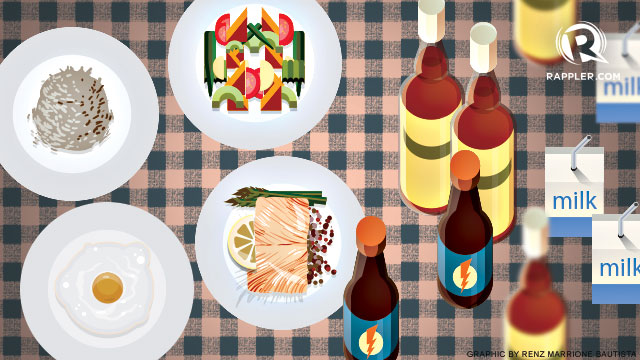
MANILA, Philippines – Are eggs bad for you? Are energy drinks good for you? Is alcohol the best nightcap?
Nutrition fads come and go, but it seems that certain food myths have been existing for too long now. It’s important to know which eating habits are actually good and which are good to discard.
Poor health results not only from the lack of resources, but also from the lack of awareness and proper knowledge regarding nutrition. The fight against hunger includes beating ignorance.
For the first part of the Hunger Project’s food myths series, Cynthia Canonicato, nutritionist-dietitian from the Philippine Children’s Medical Center (PCMC), busted the following food myths:
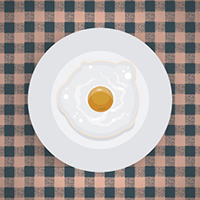 1. Eggs are bad for your heart
1. Eggs are bad for your heart
“An egg a day is okay,” according to Canonicato. It is not unhealthy and does not lead to heart disease or cholesterol problems, as long as it is consumed in moderation.
If you want to consume more than one egg/day, you can remove the egg yolk which contains the egg’s fat and cholesterol. Meanwhile, egg whites are a good source of protein.
It is best to limit one’s cholesterol intake to 300 mg/day. But for those with diabetes or cardiovascular problems, you should limit it to 200 mg/day. A large egg contains 186 mg of cholesterol.
Eggs (including the yolks!) are good sources of:
- Vitamin D – good for your bones and teeth
- Choline – important for brain function
- Lutein & Zeaxanthin – prevents eye disease
So when did eggs get its bad reputation? In the 1970s, people linked eggs to high cholesterol. But more recent research shows that these “bad” eggs are actually good.
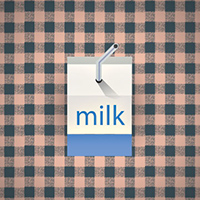 2. Milk is the only source of calcium
2. Milk is the only source of calcium
Milk does not have a monopoly of calcium. Other sources include green leafy vegetables (i.e., spinach), legumes, nuts, seeds, and grains (i.e., almonds, sesame seeds) seafoods (i.e., canned salmon, sardines), oranges, seaweed, soymilk, and tofu.
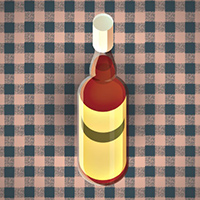
3. Alcohol before bed induces sleep
“Not true. Too much alcohol will actually make you restless,” Canonicato said.
A little drink before bed might make you feel more relaxed and help you doze off; however, alcohol actually disrupts the second half of the sleep cycle.
You will not experience deep sleep, leading to daytime sleepiness and concentration problems. Drinking before bed also increases one’s risk of sleep apnea and may worsen insomnia.
Is warm milk a better nightcap? For years, many believed that the sleep-inducing amino acid tryptophan found in milk puts us to sleep. However, tryptophan in milk is only very small.
After a glass of milk, not only will you grow a (milk) mustache, you will also feel more relaxed. However, this may be more of a mindset or a placebo effect rather than an actual scientific truth.
More recent studies suggest that eating foods high in carbohydrates, because of the released insulin, will make it easier for the tryptophan to work itself to the brain. This might explain the famous milk-and-cookies combination.
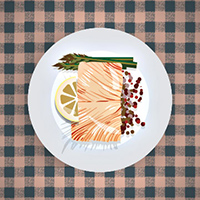 4. All fat-free or low-fat food products are always better
4. All fat-free or low-fat food products are always better
“Please read food labels,” Canonicato quipped.
It is true that too much fat is bad, but some products may be deceiving you as well.
There are products that claim to be “healthier” because they are low in fat or have no fats at all. However, nutritionists remind consumers to read the nutritional values found on product labels before buying so-called “healthy” snacks.
Some of these processed products are actually high in sugar.
These “fat-free” products lack flavor, and to make up for the bland taste, manufacturers add salt, sugar, flour and other artificial flavorings – hence increasing its calorie content.
Since people think that these products are “fat-free,” there is a tendency to overeat.
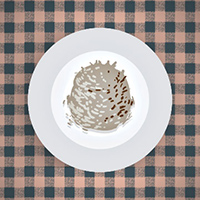 5. Brown is always better than white
5. Brown is always better than white
Brown eggs are believed to be healthier than white eggs. However, their nutritional values are just the same.
Regardless of color, well-fed hens are the best option. Hens fed with organic grains produce better eggs.
But when it comes to rice, the brown variety does have an advantage. This is because brown rice is unpolished, meaning they have not undergone processing. Brown rice has more Vitamin B complex, fiber, and iron.
However, brown and white sugar are basically the same. They have the same calorie content – 1 teaspoon has 20 calories. There is no nutritional difference between the two.
Brown sugar’s color and distinct flavor come from its molasses content – which is reduced when refined (which is why refined sugar is white). Although brown sugar contains minerals like calcium, potassium, and magnesium due to its molasses content, their levels are very minimal, hence causing no added nutritional value.
Either brown or white sugar, one must take it in moderation to avoid complications. The brown and white sugar debate is one of the most persistent food myths.
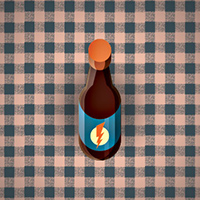 6. Energy drinks are the best source of energy
6. Energy drinks are the best source of energy
“It’s not good for children,” Canonicato stressed.
She said that children do not get any benefits or calories from energy drinks.
Each bottle contains around 50 mg of caffeine – which is even higher than coffee. They also contain taurine which helps the mind to release energy. 1 bottle contains around 1,000 mg of taurine; a child only needs 1-10 mg of taurine a day.
If children consume energy drinks, they will become hyperactive and will experience gastric irritations. They will also lose their appetite, hence increasing chances of skipping meals.
Instead, encourage children to engage in physical activities, creative and productive pursuits. Limit the hours spent on watching television, surfing the net, and playing videogames.
Make sure that children are always hydrated and that they maintain a well-balanced diet.
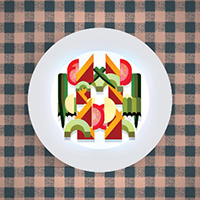 7. Healthy foods are expensive
7. Healthy foods are expensive
Perhaps this is the biggest myth of all – healthy living requires lavish spending.
Some parents say that they either do not have enough time or resources to prepare nutritious meals for their children. However, all it really takes is a bit of imagination, research, and a pint of the best ingredient of all – love.
Canonicato advises parents to select fruits and vegetables in season, so that they can buy them at a cheaper price.
Dishes do not have to be expensive. Parents must only know how to prepare and serve these meals in a variety of ways.
Perhaps the biggest myth of all is thinking that it is impossible to end hunger. It might take some time before the Philippines can fully bust this myth; however, a good start would be equipping one’s self with sufficient knowledge and awareness. – Rappler.com
When it comes to living and eating healthy, choosing the right type of food and knowing its real benefits is important. To make your grocery shopping easier, why not shop for your favorite goods online? Click here to save up on your online grocery shopping needs.
Add a comment
How does this make you feel?
There are no comments yet. Add your comment to start the conversation.